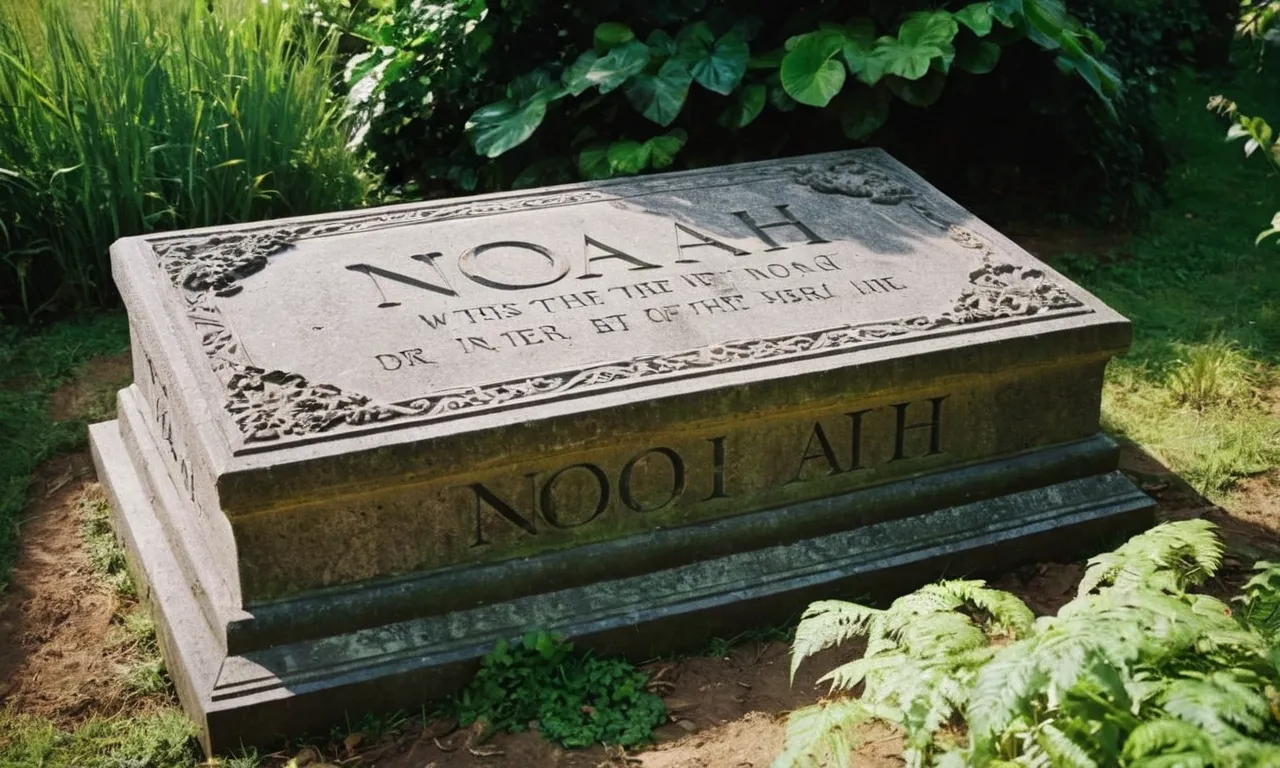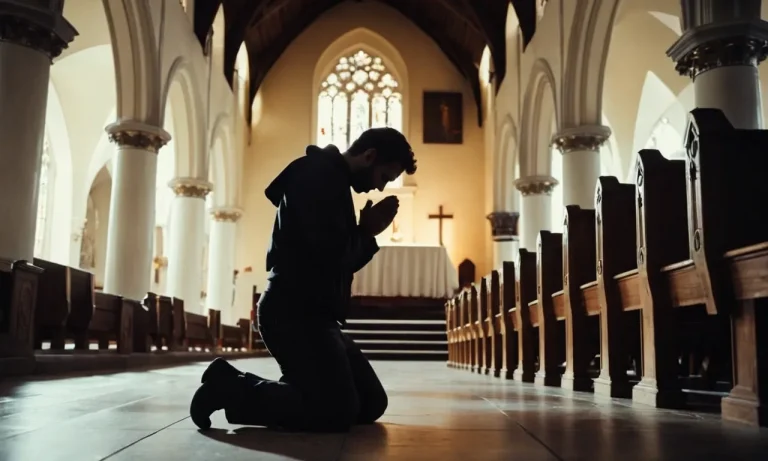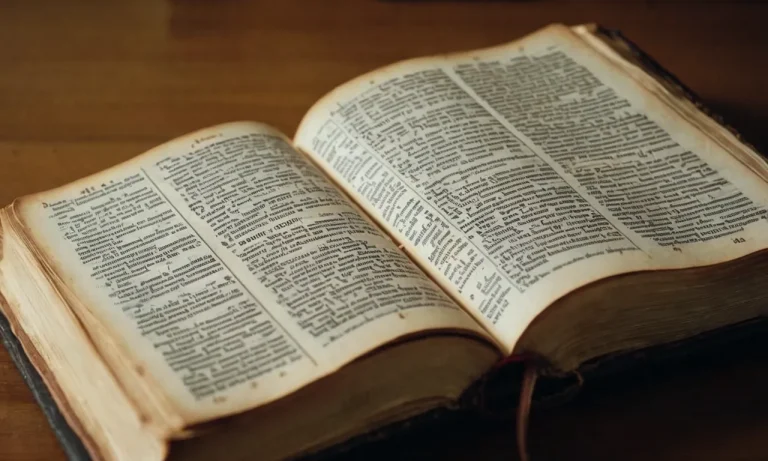How Long Did Noah Live According To The Bible?
The story of Noah and the ark is one of the most well-known Bible stories. At its center is Noah, a righteous man who God chose to build an ark to save his family and two of every animal from a devastating flood.
If you’re short on time, here’s a quick answer: according to Genesis, Noah lived to be 950 years old.
In this comprehensive guide, we will examine Noah’s full life story as told in the book of Genesis. We will look at clues in the Bible about his life before the flood, key details about the ark he built and the flood he survived, and explore theories on how he lived for nearly a millennium.
Noah’s Age When Key Events Happened
Noah’s age when he had his sons
According to Genesis 5:32, Noah was 500 years old when he became the father of Shem, Ham and Japheth. This means Noah had his three sons when he was around 500 years old. Some biblical scholars believe Noah could have been a little younger, perhaps in his late 400s, when his sons were born.
Regardless, Noah was already quite elderly, in biblical terms, when he became a father.
Noah’s age when God told him to build the ark
Genesis 5:32 indicates Noah was 500 years old when he had his three sons. Then Genesis 7:6 notes that Noah was 600 years old when the flood came. So in the intervening 100 years between having sons and the flood, God gave Noah instructions about building the ark.
The Bible does not specify exactly how many years before the flood that God spoke to Noah and told him to construct the massive ship, but sometime in between 500 and 600 years of age.
Noah’s age when the flood came
According to Genesis 7:6, “Noah was six hundred years old when the floodwaters came on the earth.” So when the 40 days and nights of flooding finally ended and Noah, his family and the animals emerged from the ark, Noah was already in his 601st year of life.
Noah’s age when he died
After the flood, Noah lived another 350 years. Genesis 9:28 notes “Noah lived a total of 950 years, and then he died.” Compared to modern life spans, this is an extraordinarily long life! But Noah still did not come close to the oldest person mentioned in the Bible, Methuselah, who was Noah’s grandfather and lived 969 years (Genesis 5:27).
Still, the ages of Noah and his ancestors are remarkable, and show how different human longevity was in ancient times compared to modern times.
Clues About Noah’s Life Before the Flood
Though the Bible does not provide definitive information about Noah’s life before the flood, there are some clues that give us insight into what his life may have been like.
Noah’s Age
Genesis 7:6 states that Noah was 600 years old when the flood waters came upon the earth. This provides a clue into the longevity of people’s lives before the flood. If Noah lived to be 950 years old (Genesis 9:29), that means he lived for another 350 years after the flood.
The fact that he was already 600 years old shows that lifespans prior to the flood were exceptionally long.
Noah Found Favor with God
Genesis 6:8 says that “Noah found favor in the eyes of the Lord.” This seems to indicate that there was something distinctive about Noah that set him apart from the rest of the increasingly wicked humanity around him. Noah stood out as righteous amidst widespread corruption and violence.
Perhaps Noah had a very close walk with God from a young age. His righteous character pleased God well before he was called to build the ark.
Noah Had Sons
Genesis 5:32 tells us that by the age of 500, Noah had three sons born to him – Shem, Ham and Japheth. By the time he started building the ark, his sons were already grown enough to help in the monumental endeavor of constructing such a massive vessel.
Having grown sons indicates Noah likely married much earlier in life, in accordance with the norm at the time. His sons went on to become the progenitors of all nations after the flood.
Though details are limited about Noah’s early years, these clues paint a picture of a man who devotedly followed God despite living in an increasingly evil society. Noah’s faithfulness not only saved his family, but through his lineage, led to the birth of the Jewish nation and ultimately the Messiah.
Key Details About Noah’s Ark and the Flood
The size and layout of the ark
According to Genesis 6:15 in the Bible, God instructed Noah to build the ark 300 cubits long, 50 cubits wide and 30 cubits high. Scholars estimate this would make the ark about 450 feet long, 75 feet wide and 45 feet high.
The ark was three stories high, with rooms inside to separate the different animals. It likely had an opening for light and ventilation at the top. The bottom deck was probably used to store food and waste.
The middle deck housed the animals, while the top deck provided living quarters for Noah’s family.
How many animals were on the ark
While we don’t know exactly how many animals were on the ark, scholars estimate it was around 2,000. This would include two of each kind of unclean animal and seven pairs of each kind of clean animal.
Rather than attempting to gather every single animal species, Noah likely took pairs capable of reproducing more diverse offspring. For example, he may have taken pairs of dog or cat “kinds” that could produce different breeds we see today.
How long the flood lasted
According to Genesis 7:11, the flood lasted 40 days and 40 nights. During this time, torrential rain caused the earth to flood.
However, Noah, his family and the animals were on the ark much longer than 40 days. Genesis says the waters flooded the earth for 150 days before receding (Genesis 7:24). It then took months for the flood levels to go down enough for the ark to come to rest on the mountains of Ararat (Genesis 8:4).
So in total, Noah spent approximately 370 days on the ark – just over 1 year. This allowed enough time for the floodwaters to completely recede so Noah, his family and the animals could safely disembark onto dry land.
Theories on Noah’s Long Lifespan
Supernatural explanation of lifespans
Many biblical scholars believe the long lifespans described in Genesis were supernatural in nature. God enabled early humans like Noah to live for centuries to fulfill His divine plan. This allowed them to accomplish great feats like building the ark and repopulating the earth after the Flood.
Their long lives may have been miraculously sustained to establish human civilization and continue the messianic bloodline that led to Jesus.
Scientific speculation about environment
Some scientists propose environmental factors may partially explain the long lifespans. The pre-Flood world is described as a lush paradise, which could have provided ideal conditions for longevity. Increased oxygen levels, mineral-rich diets, and low pollution and toxins potentially optimized health and extended lifespans.
However, lifespans over 900 years still seem biologically improbable. Genetics likely played a key role.
Role of genetics
According to genetics research, lifespans are heavily influenced by inherited genes. Early humans like Noah may have possessed genetic traits that predisposed them to extreme longevity. Some experts theorize they carried far fewer genetic mutations, allowing their bodies to optimally repair and sustain themselves.
Their cells were likely supremely resilient against stress and decay. However, mutations inevitably accumulated over generations, progressively shortening lifespans. While genetics and environment played a part, most biblical scholars maintain God supernaturally enabled the long pre-Flood lifespans to fulfill His divine plan.
Conclusion
As we have seen, the Bible provides quite a few details about the story of Noah and the flood. While some aspects like the ages of key events require analysis to determine, the text directly states Noah lived to the advanced age of 950 years.
Examining clues about Noah’s life and environment before the flood as well as scientific theories about genetics and early human longevity give us some possible explanations for his nearly millennial lifespan. But ultimately, for Bible believers, the feat requires faith in the supernatural.
Whatever one thinks about the plausibility of the account, the story of Noah and his three-century task of building and sailing the life-saving ark remains one of the most epic in scripture.







